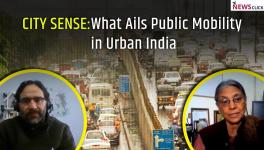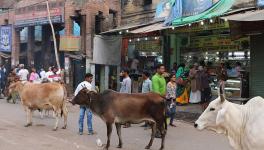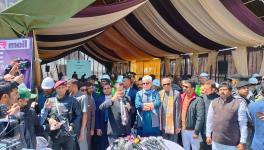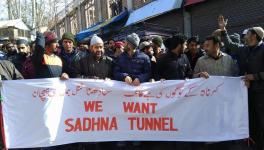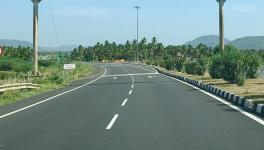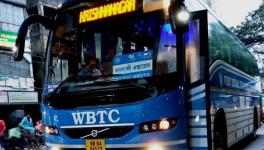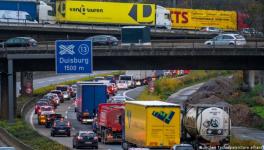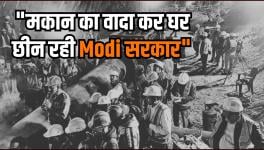In My Own Voice: Feeding the Ants
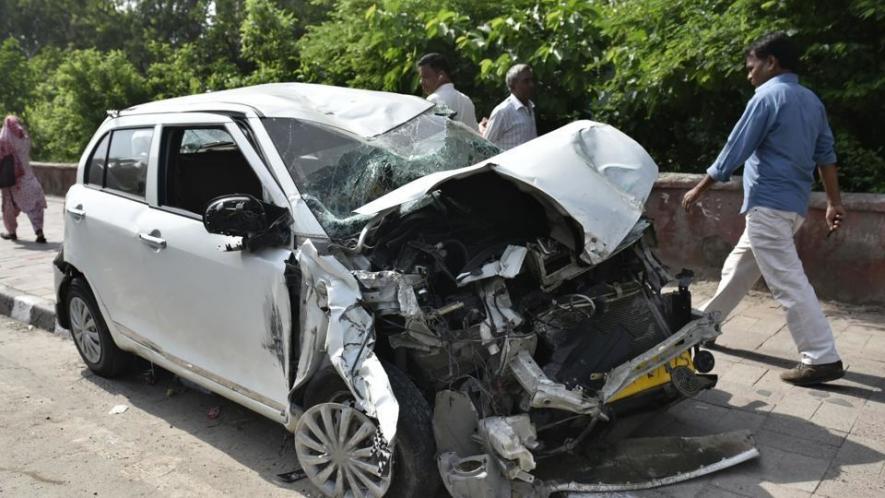
I am fortunate to live near a park and when I go for a walk in the morning, I always see an old man scattering atta (wheat flour) on the ground, around trees and even on the grass, all the while muttering Sanskrit shlokas. He does this religiously on hot summer mornings and even in the winter when the fog is so great and one can’t see beyond one's nose.
One day rather mystified, I stopped and asked him, “What are you doing?”. He smiled at me and replied, “I am feeding the ants.”
It is true, in our civilisation feeding the ants – the smallest of species – is considered a noble and indeed, an auspicious act. What better way to start the day than feeding the ants, those who in case of a nuclear holocaust are predicted to be the only ones to survive. Then again, the annual budget levies hefty taxes- both direct and indirect, so that the state can ostensibly serve the poor, the humble ants that toil to uphold the nation.
In a way we would assume that the state would take care of the basic needs and safety of the people, the majority of whom are poor. After all, that is why we go through a massive ritual called elections, where we cast a vote for a group of men to govern, not rule us.
However, it caused me deep grief and anguish to see that in the recent bus accident on Yamuna Expressway as many as 29 people died. The driver apparently fell asleep. In Himachal Pradesh on 20 June, 44 people were killed and 37 were severely injured as a bus fell into a gorge in Kullu district near Banjar. In India, about one and a half lakh people are killed annually and 5 lakh people severely injured due to road accidents; India has the highest fatality rate in the world.
The Transport Minister Nitin Gadkari’s recent statement that his ministry is considering making it mandatory for tyre manufacturers to infuse nitrogen into the tyres instead of air and mixing silicone with rubber – to prevent the bursting of tyres, is a mere technical solution. It ignores what is happening on the ground or literally on the roads of India.
While we have imported high speed vehicles from all over the world, our roads remain what they are, miserable with potholes and there is an explosion of traffic. Scores of people go to the hills during the summer break and several Volvo buses are seen embarking from the plains to the Himalayas. As the Volvo buses advertise their plush seats with seat belts in the photographs, one would assume that they have them. To my horror, I learned that the buses have only the first row with seat belts, while the rest of the hapless passengers and children – who are particularly vulnerable with lesser body weight to withstand the upward and downward movements of the bus in motion – have to simply do without it.
Worse, on a recent trip, I noticed the bus driver lighting what looked like a cigarette and opening his window. I smelled the sweet, intoxicating smell which I knew was of hashish or ‘Hash’. The hash-smoking driver was driving us merrily up a highway. When I complained to the conductor he said, “The driver has a service of many years behind him,” and then he threw the black roll that he was smoking, which also looked like a roll of hash!
Meanwhile, a traffic cop stopped the bus for a check. I thought inwardly that now they would be caught for smoking hash while driving and risking the lives of so many passengers. But the conductor yelled the name of the transportation company – which had obviously oiled the traffic police system – and the policeman waved him off merrily, without a check.
What shocks me is that the air-conditioned, plush Volvo buses always come with seat belts from Germany where they are mandatory. In Europe, the police drives alongside, photographing people not wearing their seat belts and fines them as accidents cause the public exchequer money. However, in India, most of the public vehicles do not have any seat belts. You are on your own and have to go ‘Ram bharose’ ( Trust on god Ram)
A quick survey of taxis including the ubiquitous Uber and Ola and the good old neighbourhood taxi stands (that are fast disappearing due to competition from the app-based transportation services), will reveal that there are no sockets to place the seatbelts in the back! Those have been pushed into the seats or removed so that room can be made for more passengers. Lucre over-rides safety!
On a recent trip from the Delhi airport, I requested the pre-paid taxi service for a taxi with seatbelts at the back. The police official manning it, looked at me blankly then he said, “I don’t know of seat-belts in the back.” And that was it. There were no seat belts at the back.
A survey at the airport and railway stations will reveal that most taxis will have only seat belts in the front and no functional seat belts at the back, but in case of a hit or a jerk, the unfortunate passenger will go hurtling through the windshield as is what happened to Gopinath Munde in Delhi. The then Health Minister, Dr. Harsh Vardhan had stated, “If he had worn a seat belt he could have survived.” That may be true of the vehicle Gopianth Munde was in, but most public vehicles don’t have seat belts available and Nitin Gadkari would be well advised to survey the situation in which the people of India are being ground down, on the road.
The traffic police is not only on the payroll of transport operators but also frequently removes its name plate, by placing their cellphone after raising the flap of their pocket, hiding their names, blithely and shamelessly.
This is being done with such abandonment in Delhi as they stop hapless drivers to check for ‘papers’. However, most roads even in the capital city of Delhi, do not have pedestrian crossing lights for children to cross safely to their school bus. When we can have so many cow vigilantes, how is it that there are no traffic vigilantes?
Nevertheless, as road accidents rise and the toll mounts, the people who are crushed like ants are the people of India.
In this melee, who does the bell toll for? It tolls for thee!
The author is an award-winning author & film-director. The views expressed are personal.
Get the latest reports & analysis with people's perspective on Protests, movements & deep analytical videos, discussions of the current affairs in your Telegram app. Subscribe to NewsClick's Telegram channel & get Real-Time updates on stories, as they get published on our website.









